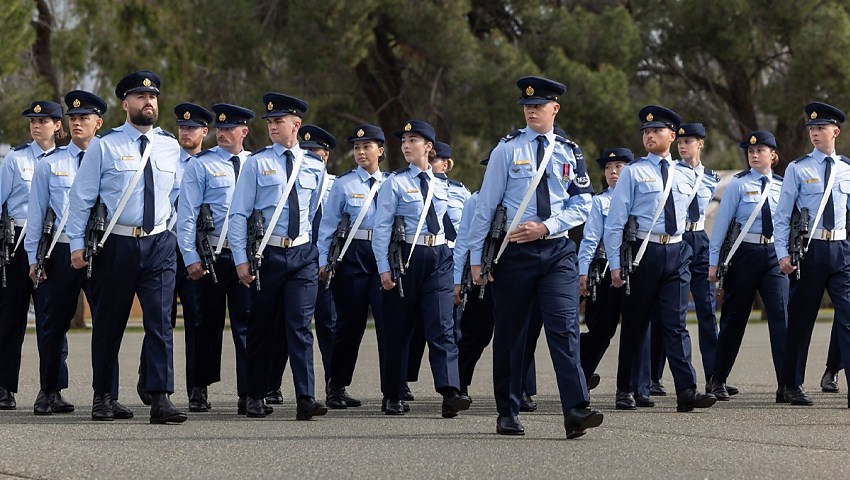Defence has announced the dual base names of Yalbiligi Ngurang for RAAF Base Wagga and Gabuga for Blamey Barracks (Kapooka) to recognise Wiradjuri country.
Dual naming highlights the longstanding links between Defence and First Nations communities by acknowledging the important role that First Nations people have and continue to play in the defence of Australia.
With 90 per cent of Australia’s First Nations languages identified as endangered, dual naming of our bases is an important way for Defence to support local languages being retained where personnel work, live and train.
The Wiradjuri traditional owners have provided Wiradjuri names for RAAF Base Wagga: “Yalbiligi Ngurang” (pronounced “Yal-bili-gi Ner-rung”), and “Gabuga” (pronounced “Gah-buh-gah”, the traditional pronunciation of Kapooka) for Blamey Barracks.
The First Nations language names, which complement the existing names, are reflected on newly erected base entry signage unveiled during a special ceremony.
Dr (Uncle) Stan Grant AM, Wiradjuri elder, said dual naming was part of a broader recognition of the Wiradjuri language.
“This is a wonderful initiative by the Australian Defence Force,” he said.
“As a Wiradjuri language restoration matter expert, I am extremely pleased to be assisting and supporting Kapooka in obtaining the traditional name of the country, which is Gabuga.”
Local artists have contributed to this important initiative through representative artwork, which is proudly displayed on the new base entry signage.
Aunty Cheryl Penrith, Wiradjuri elder, welcomed the initiative.
“To see Defence embracing dual naming in the Wiradjuri language at RAAF Wagga is fantastic,” she said.
“For our community, this is a warm and welcoming sign, a symbol of mutual respect and common ground.”
Blamey Barracks First Nations elder Uncle Hewitt Whyman also welcomed the dual naming.
“The relationship between the Wiradjuri people and Army has been ever evolving in strength and unity,” he said.
“The dual naming enhances the cultural relationship and understanding by including Wiradjuri language on an already well-known military establishment and identifying the traditional significance of the land.”
Defence deeply appreciates the support from First Nations representatives who have worked closely on this initiative, sharing their First Nations language names for these bases, and the definitions and stories for these names.
Defence’s Indigenous champion and deputy secretary security and estate, Celia Perkins, said the updated signage created a tangible link to the local language.
“The dual naming of these Defence bases provides an official recording of the First Nations place names, preserving languages and culture, and recognising the longstanding relationships between Defence and First Nations communities,” Perkins said.






